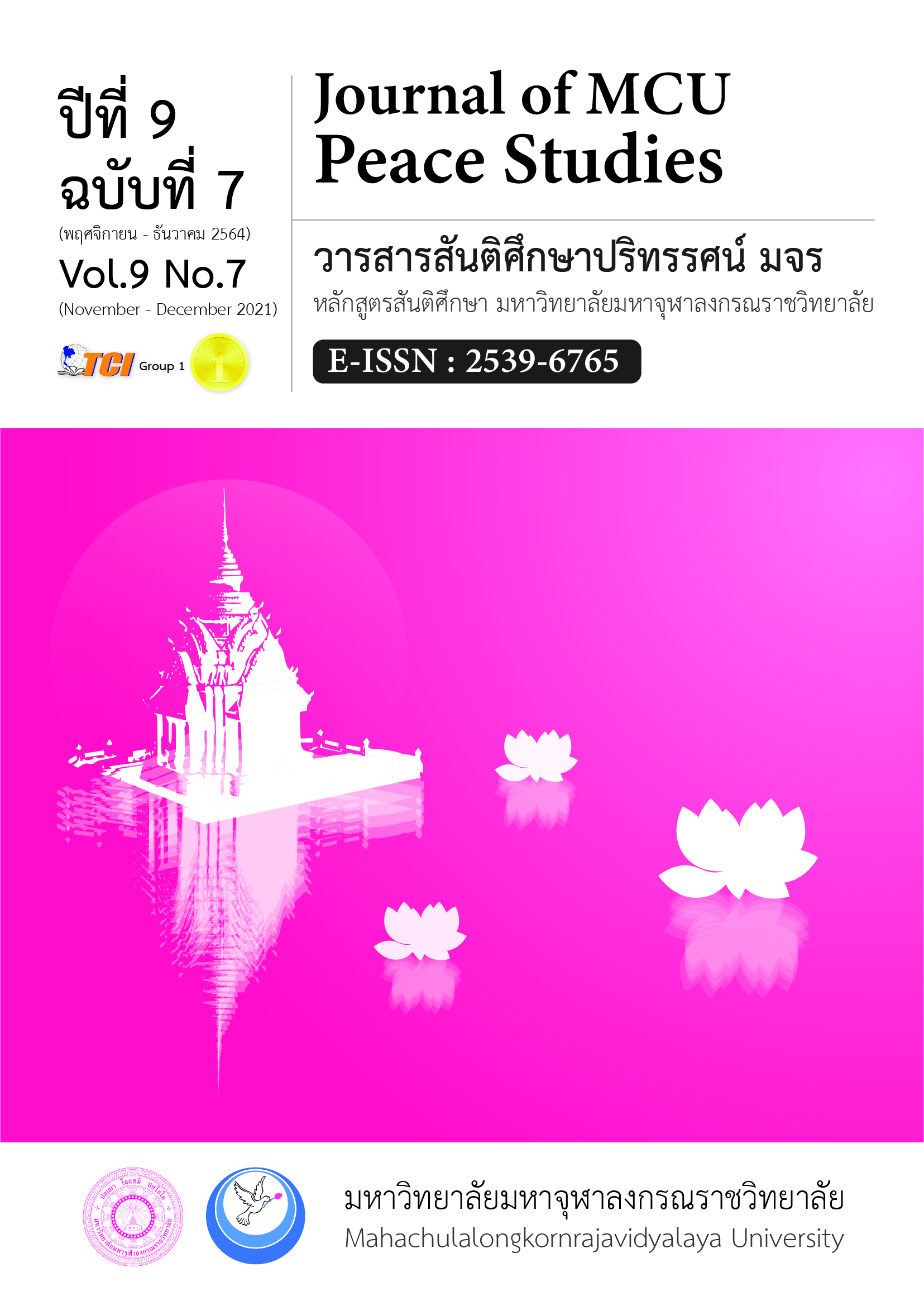ความมั่นคงทางไซเบอร์และผลประโยชน์แห่งชาติ: กรณีศึกษาประเทศสหรัฐอเมริกา, รัสเซีย, จีน และ เกาหลีเหนือ
Main Article Content
บทคัดย่อ
ความมั่นคงทางไซเบอร์ กลายมาเป็นประเด็นสำคัญต่อการดำรงอยู่ของรัฐต่างๆ เนื่องด้วยกระแสโลกาภิวัตน์ที่นำพาการพัฒนาเทคโนโลยีกระจายสู่นานาประเทศ ทำให้เกิดการเข้าถึงของข้อมูลต่างๆ และการนำไซเบอร์เข้ามามีส่วนเกี่ยวข้องในกระบวนการและดำเนินนโยบายต่างๆของประเทศ เพื่อผลประโยชน์แห่งชาติ บทความวิชาการชิ้นนี้ เป็นการนำกรณีศึกษาของประเทศสหรัฐอเมริกา รัสเซีย จีน และเกาหลีเหนือ ที่มีเนื้อหาเกี่ยวกับความมั่นคงทางไซเบอร์ ผลประโยชน์แห่งชาติ และการทำสงครามไซเบอร์ วิเคราะห์ผ่านแนวคิดผลประโยชน์แห่งชาติและทฤษฎีสัจนิยมแบบดั้งเดิม ผลการวิเคราะห์ทำให้เห็นถึงบริบทของประเทศที่แตกต่างกันในการนำไซเบอร์มาใช้ในการดำเนินกิจการภายในประเทศและการทำสงครามด้วยไซเบอร์ โดยการกระทำทั้งหมดนั้น เป็นการกระทำเพื่อผลประโยชน์แห่งชาติ ดังนั้น แต่ละประเทศจึงต้องรักษาความมั่นคงทางไซเบอร์เพื่อเป็นการรักษาผลประโยชน์แห่งชาติด้วยวิธีการที่แตกต่างกันออกไป
Article Details

อนุญาตภายใต้เงื่อนไข Creative Commons Attribution-NonCommercial-NoDerivatives 4.0 International License.
ทัศนะและความคิดเห็นที่ปรากฏในบทความในวารสาร ถือเป็นความรับผิดชอบของผู้เขียนบทความนั้น และไม่ถือเป็นทัศนะและความรับผิดชอบของกองบรรณาธิการ ยินยอมว่าบทความเป็นลิขสิทธิ์ของวารสาร
เอกสารอ้างอิง
Allison, G., & Blackwill, R. D. (2011). Russia and U.S. National Interests: Why Should Americans Care?. Retrieved October 11, 2021, from https://www.cfr.org/report/russia-and-usnational-interests-why-should-americans-care.
Avery, E. M. et al. (2017). North Korean Cyber Capabilities: In Brief. Retrieved October 11, 2021, from https://sgp.fas.org/crs/row/R44912.pdf.
Azmi, R., & Kautsarina, K. (2019). Revisiting Cyber Definition. Retrieved October 11, 2021, from https://www.researchgate.net/publication/334989724_Revisiting_Cyber_Definition.
Cooper III, C. A. (2011). Chinese Perceptions of and Strategic Response to Threats in Cyberspace. In J. Lindsay (Ed.), IGCC Workshop Report on China and Cybersecurity (pp.1-36). San Diego: University of California San Diego.
Crespo, R. A. (2018). Currency warfare and cyber warfare: The emerging currency battlefield of the 21st century, Comparative Strategy, 37(3), 235-250.
Gady, F. S., & Austin, G. (2010). Russia, The United States, And Cyber Diplomacy. Retrieved October 13, 2021, from https://www.eastwest.ngo/sites/default/files/ideas-files/USRussiaCyber_WEB.pdf.
Ha, M., & Maxwell, D. (2018). Kim Jong Un’s ‘All-Purpose Sword’ North Korean Cyber-Enabled Economic Warfare. Retrieved October 13, 2021, from https://www.fdd.org/wpcontent/uploads/2018/09/REPORT_NorthKorea_CEEW.pdf.
Hakala, J., & Melnychuk, J. (2021). Russia's Strategy in Cyberspace. Riga: NATO Strategic Communications Centre of Excellence.
Hjortdal, M. (2011). China's Use of Cyber Warfare: Espionage Meets Strategic Deterrence. Journal of Strategic Security, 4(2), 1–24.
Lehto, M. (2013). The Cyberspace Threats and Cyber Security Objectives in the Cyber Security Strategies. International Journal of Cyber Warfare and Terrorism, 3(3), 1-18.
Mitra, A. (2010). Digital Security: Cyber Terror and Cyber Security. New York: Infobase
Mount, M. (2009). Hackers stole data on Pentagon's newest fighter jet. Retrieved October 17, 2021, from https://edition.cnn.com/2009/US/04/21/pentagon.hacked/.
Peritz, A. J., & Sechrist, M. (2010). Protecting Cyberspace and the US National Interest. Retrieved October 17, 2021, from https://www.belfercenter.org/sites/default/files/legacy/files/cyber-vital-national interest.pdf+&cd=2&hl=th&ct=clnk&gl=th.
Powcharoen, P. (2021). Economy and Nuclear Development: The Case of North Korea. Journal of Political Economy, 9(1), 107 – 123.
Putthiwanich, K. (2021). National Interest and International Relations Theories.Political Science Critique, 8(15), 1-24.
Raud, M. (2016). China and Cyber: Attitudes, Strategies, Organisation. Retrieved October 17, 2021, from https://ccdcoe.org/library/publications/china-and-cyber-attitudes-strategies-organisation/.
Worldometers. (2021). China Population. Retrieved October 19, 2021, from https://www.worldometers.info/world-population/china-population/.
Yuxiao, L. (2011). Cyberspace Security and International Cooperation in China. In J. Lindsay (Ed.), IGCC Workshop Report on China and Cybersecurity (pp.56 - 78). San Diego: University of California San Diego.


